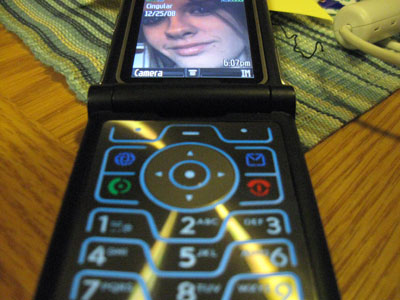All Nonfiction
- Bullying
- Books
- Academic
- Author Interviews
- Celebrity interviews
- College Articles
- College Essays
- Educator of the Year
- Heroes
- Interviews
- Memoir
- Personal Experience
- Sports
- Travel & Culture
All Opinions
- Bullying
- Current Events / Politics
- Discrimination
- Drugs / Alcohol / Smoking
- Entertainment / Celebrities
- Environment
- Love / Relationships
- Movies / Music / TV
- Pop Culture / Trends
- School / College
- Social Issues / Civics
- Spirituality / Religion
- Sports / Hobbies
All Hot Topics
- Bullying
- Community Service
- Environment
- Health
- Letters to the Editor
- Pride & Prejudice
- What Matters
- Back
Summer Guide
- Program Links
- Program Reviews
- Back
College Guide
- College Links
- College Reviews
- College Essays
- College Articles
- Back
With Great Electronics Come Great Responsibility
Pocket computers are now everywhere. Internet access is now possible through your glasses. One system can now control everything in your house. The digital age is truly upon us. And in this world, where high-tech “toys” are so readily available, the demographic for these products are also expanding. The most notable of these new consumers are kids.
My generation is often referred to as “digital natives,” meaning that we were introduced to digital technology at a young age. I received my first laptop when I was 11, as part of a new part of our education system. The laptop was mine! I never felt like I had so much freedom ever before, and most of that was attributed to the reality of the Internet itself. I could watch funny videos and play games all day if I wanted to; and indeed, that’s what I wanted. Within a year, I received my first smart phone. Different social media platforms, as well as App Store games, were all a touch away, and stored in my pocket. For hours on end, I would stare at my phone and laptop. I also didn’t need my parent’s permission to watch TV or play on the console anymore, since I could just do the same on my laptop and “switch screens” when they come in. Thus began the development of my procrastination issue, a battle I still fight to this day. It was not until years later did I realize just how detrimental my behavior was to my productivity.
I am not condemning young kids who use electronic devices. My goal is not to blame the school for giving me a laptop, or to blame my parents for giving me a phone. My point is that kids need to understand how to appropriately use the devices they have available. According to a study done by Influence Central, a large marketing company, the average age for getting a first phone is 10.3 years old. The kids’ brains are simply not developed enough to be as responsible has he/she needs to be in order to efficiently utilize these devices (since their brains begin to change during puberty, but most kids will not have began puberty at 10). The saying “we aren’t using our phones, our phones are using us,” refers to all the people with Internet addiction in our society. Premature kids will be even more susceptible to Internet addiction, and this may lead to the development of bad habits, such as procrastination.
A close supportive group is needed to guide the child regarding his/her use of electronics. Parents or guardians, certain teachers or counselors, or even older siblings can be part of this group. They should try and lead the child onto the right path through positive reinforcement. Only when you experience the positives of resisting a bad behavior will you see the negatives from before. Through this experience, the child not only will understand how to responsibly use electronic devices, but he/she may also develop the skillset needed to tackle other lifestyle problems.
Right now, I have a younger sister in 7th grade; she’s 12. She too has a laptop. She too has a smart phone. And she too procrastinates. Perhaps we can help my sister understand how to responsibly use these devices sooner than I did.

Similar Articles
JOIN THE DISCUSSION
This article has 0 comments.
